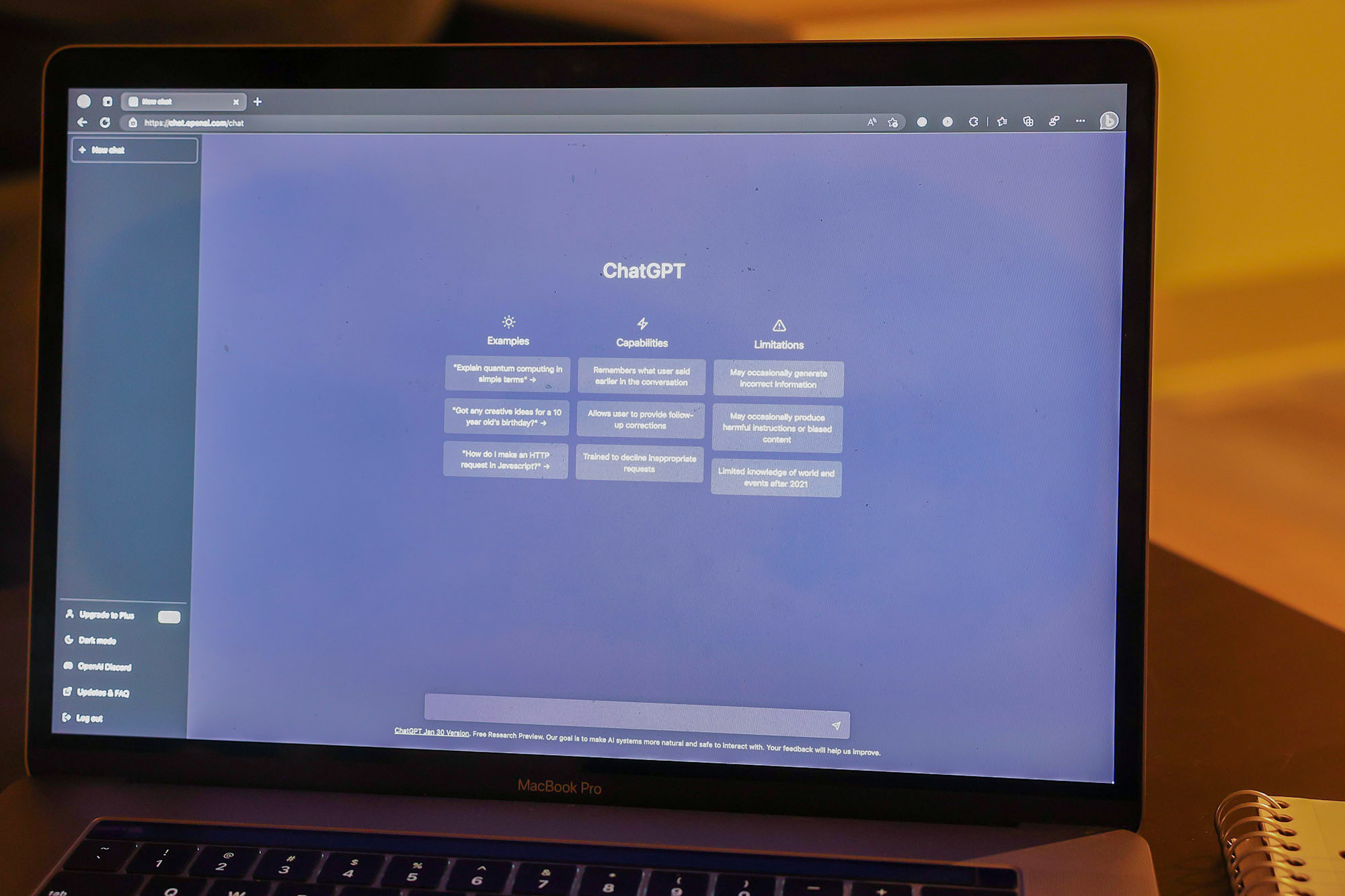Prince George’s County Public Schools is grappling with classroom use of ChatGPT — an artificial intelligence chatbot making waves in public school systems across the country.
The conversation around AI chatbots comes as neighboring school systems, such as Montgomery County Public Schools and Baltimore County Public Schools, have completely banned ChatGPT from school networks. The technology’s remarkable capabilities, such as creating unique content pulled from many different sources, create both concerns of plagiarism and opportunities for learning.
District 2 Board of Education member Jonathan Briggs, a former educator and resident of Prince George’s County, explained how the chatbot’s unique design presents a new and complex challenge public schools have yet to face. One of ChatGPT’s largest impacts on students is potentially diminishing the need for critical thinking skills due to an increased reliance on the technology.
“[ChatGPT] does a lot of that creative thinking that we really want to make sure that students are doing,” Briggs said.
[Prince George’s County officials reflect on last year’s youth curfew]
Others, while acknowledging the concerns Briggs raised, have suggested that the chatbot could also serve as a valuable tool for teachers in the classroom. Other school systems nationwide, such as Seattle Public Schools, have taken a more measured approach by banning ChatGPT from school systems, but are working with teachers to incorporate the AI engine as a teaching tool.
Appointed Board of Education member and University of Maryland faculty member Curtis Valentine proposed that the technology could be successfully incorporated into classrooms by teachers for feedback purposes and strengthening student understanding of certain concepts.
But Valentine also urged a methodical approach in discussing ChatGPT by weighing its benefits and drawbacks.
“We’re really relying on our technology folks to give us some feedback and to fully understand the platform … what the opportunities are and what the ethical and moral considerations could be,” he said.
In the imminent future, both Briggs and Valentine encouraged vigilance by parents, students and teachers to pinpoint inappropriate use of ChatGPT by students and limit academic integrity violations.
The school district could also look into plans that aid teachers in identifying plagiarized work. Briggs suggested that such resources could be accounted for in the school board’s budget for the upcoming school year. Briggs said his views do not necessarily reflect those of the whole board.
Valentine shifted the focus to parents and students and suggested that using ChatGPT for cheating was a matter of ethical and moral standards.
“It really comes down to the responsibility of parents and students to have the highest regard for the ethics and to take full responsibility for the work they submit on their own behalf,” Valentine said.
[Tom Dernoga named Prince George’s County Council chair in leadership shake-up]
Long-term, PGCPS has many options on the table to address the rise of ChatGPT.
Valentine hinted that a plan is in place to ban ChatGPT from school networks, pending review by the county’s technology department. Valentine emphasized that the proposed ban is to allow for a departmental review of the technology to better understand its possible benefits and drawbacks to the county.
“It’s really just trying to fully understand the entire app and not just relying on news headlines,” Valentine said. “We’re in the process of designing approaches to work with our teachers to really leverage the advantages of artificial intelligence.”
Like Valentine, PGCPS IT support specialist Billy Bridges also supports an open-minded attitude toward ChatGPT.
“I believe we can look at multiple options, but only if the technology is in such a state of development that it does not harm the student users,” Bridges said.
When projecting the future of ChatGPT in PGCPS, Valentine struck an optimistic tone.
“Eventually, we will get to a point where a tool like this will be one we will use,” he said. “There will have to be training with parents and students around the ways to use it to enhance educational performance and not simply to copy or plagiarize and to take shortcuts to learning.”



